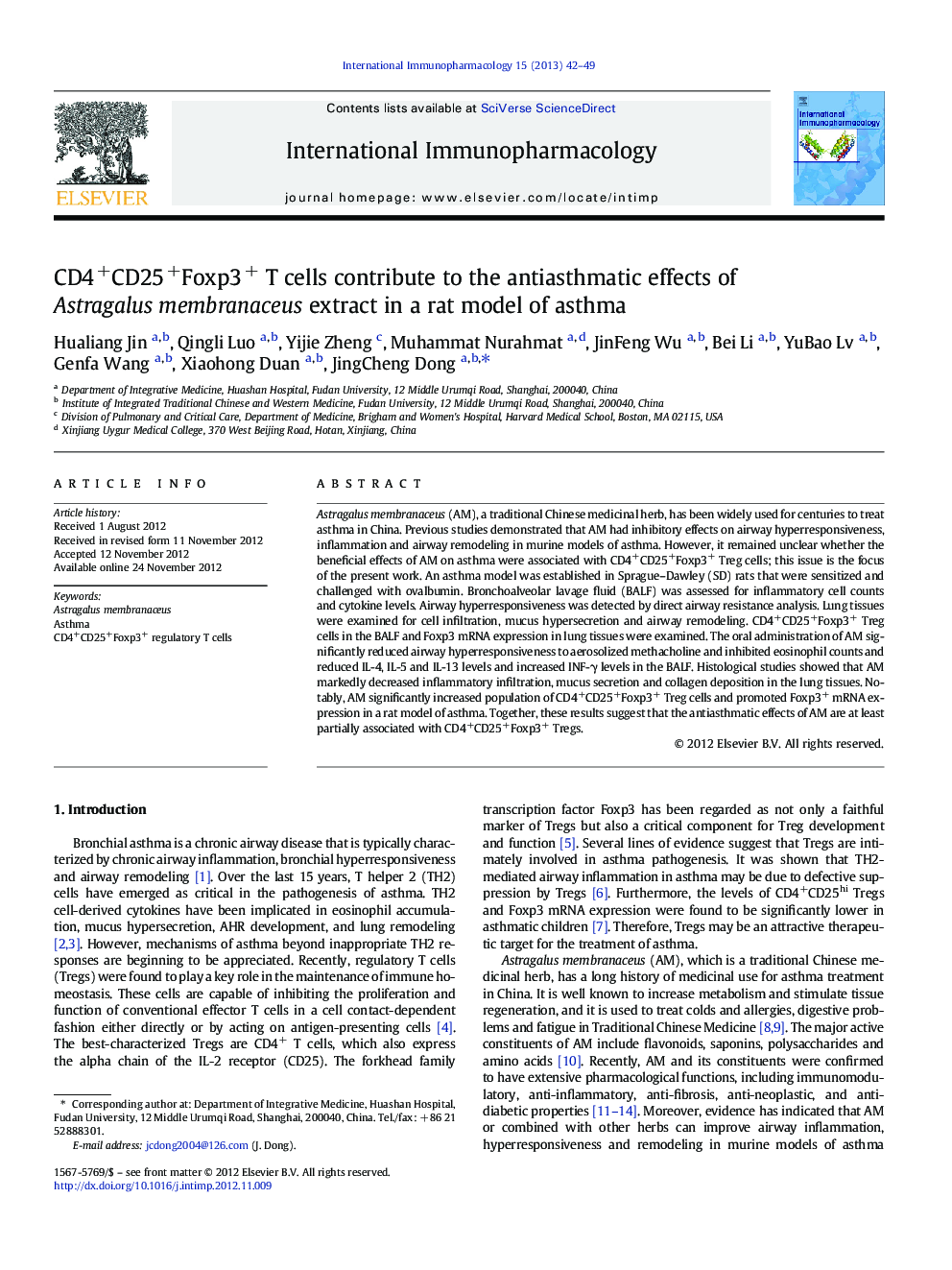| Article ID | Journal | Published Year | Pages | File Type |
|---|---|---|---|---|
| 2540925 | International Immunopharmacology | 2013 | 8 Pages |
Astragalus membranaceus (AM), a traditional Chinese medicinal herb, has been widely used for centuries to treat asthma in China. Previous studies demonstrated that AM had inhibitory effects on airway hyperresponsiveness, inflammation and airway remodeling in murine models of asthma. However, it remained unclear whether the beneficial effects of AM on asthma were associated with CD4+CD25+Foxp3+ Treg cells; this issue is the focus of the present work. An asthma model was established in Sprague–Dawley (SD) rats that were sensitized and challenged with ovalbumin. Bronchoalveolar lavage fluid (BALF) was assessed for inflammatory cell counts and cytokine levels. Airway hyperresponsiveness was detected by direct airway resistance analysis. Lung tissues were examined for cell infiltration, mucus hypersecretion and airway remodeling. CD4+CD25+Foxp3+ Treg cells in the BALF and Foxp3 mRNA expression in lung tissues were examined. The oral administration of AM significantly reduced airway hyperresponsiveness to aerosolized methacholine and inhibited eosinophil counts and reduced IL-4, IL-5 and IL-13 levels and increased INF-γ levels in the BALF. Histological studies showed that AM markedly decreased inflammatory infiltration, mucus secretion and collagen deposition in the lung tissues. Notably, AM significantly increased population of CD4+CD25+Foxp3+ Treg cells and promoted Foxp3+ mRNA expression in a rat model of asthma. Together, these results suggest that the antiasthmatic effects of AM are at least partially associated with CD4+CD25+Foxp3+ Tregs.
► AM inhibited AHR, airway inflammation and remodeling in a rat model of asthma. ► AM enhanced population of CD4+CD25+Foxp3+ Treg cells in BALF. ► AM increased expression of Foxp3 mRNA in lung tissue. ► Antiasthmatic effects of AM are associated with Tregs.
